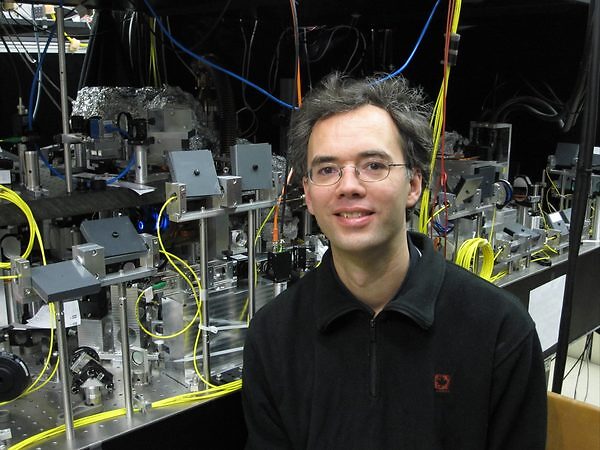Seminar: "Excitation dynamics in a spin-orbit coupled BEC" by Prof. Peter Engels

Date
Location
Description
Abstract
Spin-orbit coupling (SOC) provides a very flexible tool for modifying the dispersion relation, and thus the dynamical properties, of a BEC. The plane-wave phase of an SOC BEC features a double-well structure including a region of negative curvature. Effects of the associated negative mass have been revealed in our previous expansion experiments, where one edge of an expanding SOC BEC slowed down upon entering the negative mass regime.
Based off of these studies, we have developed a range of experimental tools to excite and probe dynamics from the linear to the nonlinear regime, and even in extreme regimes such as shock waves or quantum turbulence. For example, by releasing an initially trapped BEC in the presence of a BEC background, we can study the transition from sound to shock and show how the anisotropy of the spin-orbit coupling affects the shock structure. As a second example, static or moving barriers can be used to excite dynamics and even turbulence in a spin-orbit coupled could. Our experiments are corroborated by accompanying numerical simulations. The current status and future directions of this line of research will be discussed.
Biography
Peter Engels is a professor of physics at Washington State University (USA). He received his PhD from the University of Hannover, Germany, in 2000. From 2001 to 2004, he worked at JILA /University of Colorado (USA) as a postdoctoral researcher. In the group of Nobel laureate Eric Cornell he led an experimental program studying large vortex lattices in dilute-gas Bose-Einstein condensates. Since 2004 he is a faculty member at Washington State University where he is heading the Fundamental Quantum Physics lab. His research interests focus on quantum-degenerate gases, including Bose-Einstein condensates and degenerate Fermi gases. Prof. Engels is a Fellow of the American Physical Society and holds a Meyer Distinguished Professorship of Sciences at WSU.
Subscribe to the OIST Calendar: Right-click to download, then open in your calendar application.



